“It is by understanding the dakini’s fierceness as a productive and creative source of raw energy that we see the dakinis in action wielding – the power to subdue, protect, and transform. We must find the sources to access this fierce dakini power and bring it to bear on what matters to us in our lives, be it emotional, spiritual, intellectual, or political. Meeting our strong feminine energy, we will develop as women, and not as women trying to be like men or asexual beings. We are different, and until that difference is known, owned, and maximized, our true feminine potency and capacity to bring this world into balance will not be realized. The powerful, fierce feminine is very much a part of the psyche, but it is repressed; and when it is not acknowledged because it is threatening, it can become subversive and vengeful. But when it is acknowledged and honored, it’s an incredible source of power.” ~Lama Tsultrim Allione
How Anger Can be Transformed into Compassionate Action – by Jan Loveland
I had the good fortune to visit the Umoja Women’s Village in rural Kenya in September with Lauren Rathvon and BJ Graf of Retreatours. These women are the epitome of the Empowered Feminine. They all embody the sometimes fierce aspect of Red Tara who steps down to Earth to be a service to all beings. Her power is glorious and she is a magnificent Bodhisattva that transcends the world. Lauren Rathvon is a Bodhisattva herself (in my opinion, as is her husband, BJ Graf) and has allowed me to share her article about this village and these women. The following words are all hers.
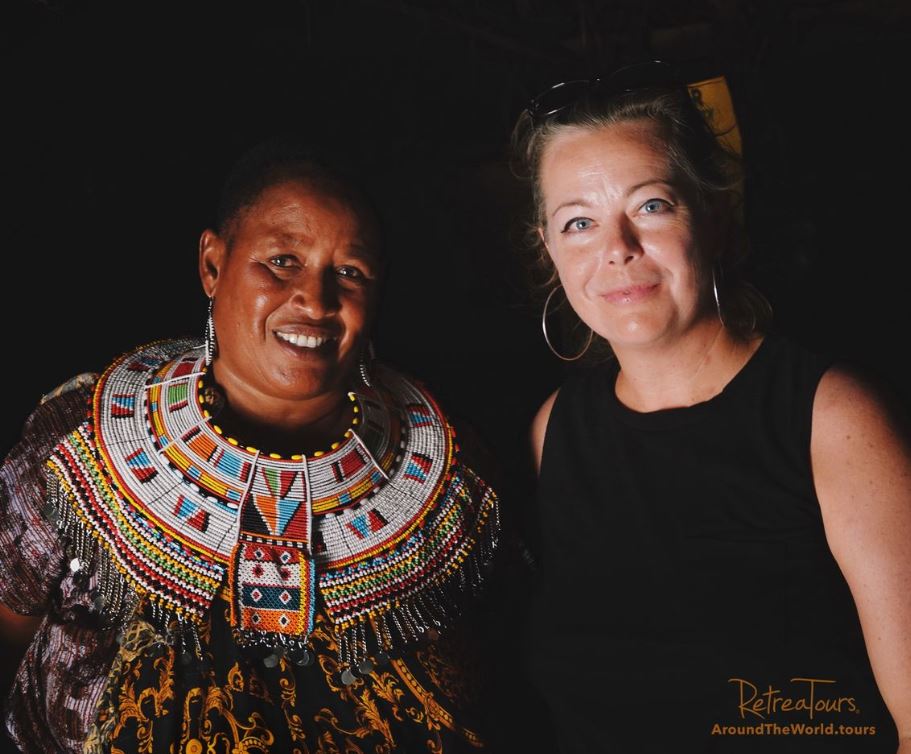
“In the red sands of Samburu, Kenya, fifteen brave souls created a women’s village in 1990. Called Umoja, or “Unity” in Swahili, this village provides refuge to women in a society that sees them as property–and expendable. Umoja provides shelter for women fleeing female genital mutilation, child marriage, rape, forced abortions, and more. These are not isolated abuses–these are injustices that every Samburu girl and woman faces in her life.
Together, the women create beaded handicrafts to sell to passing tourists. With that money, they’ve created a primary school to educate the next generation–not only in reading and writing but that women’s rights are also human rights. There are currently 38 women and their children in the village and almost 80 students from the surrounding villages who attend Umoja’s school.
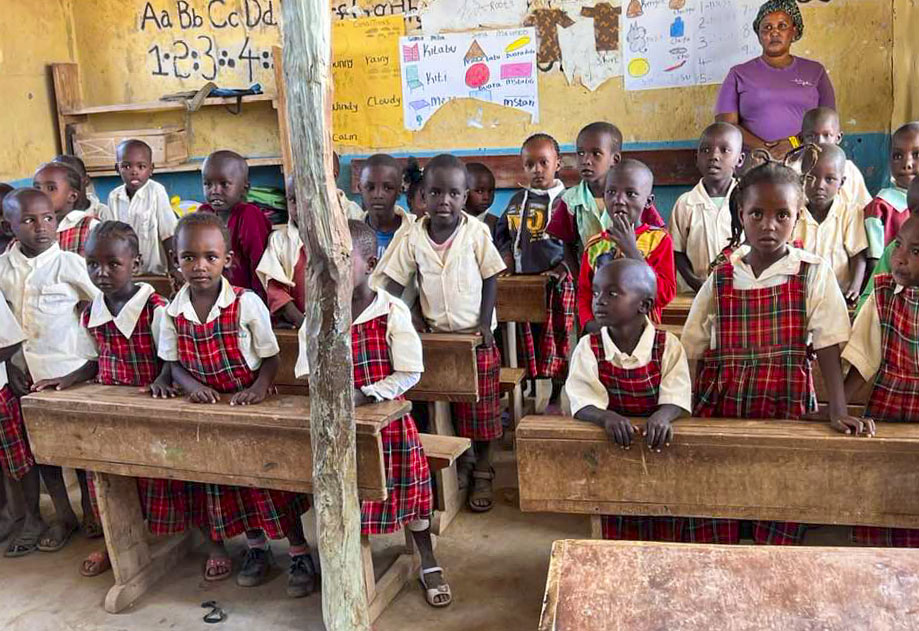
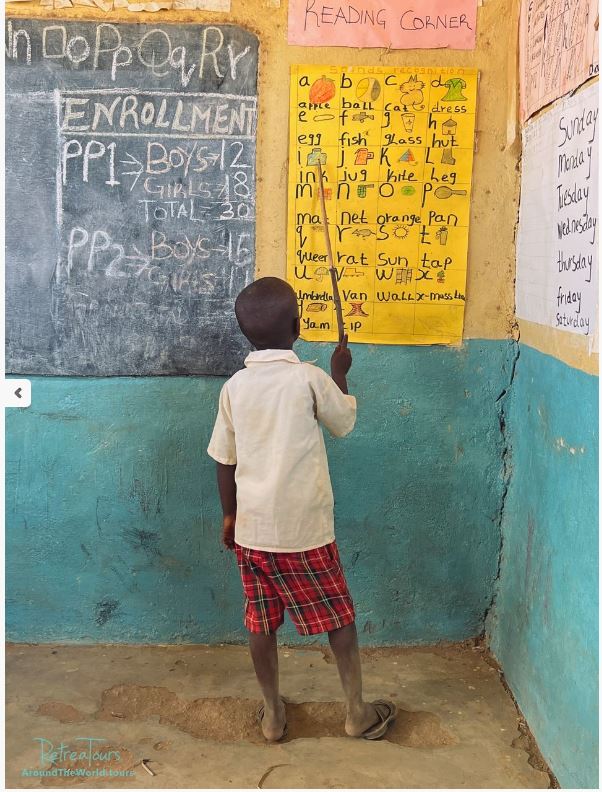
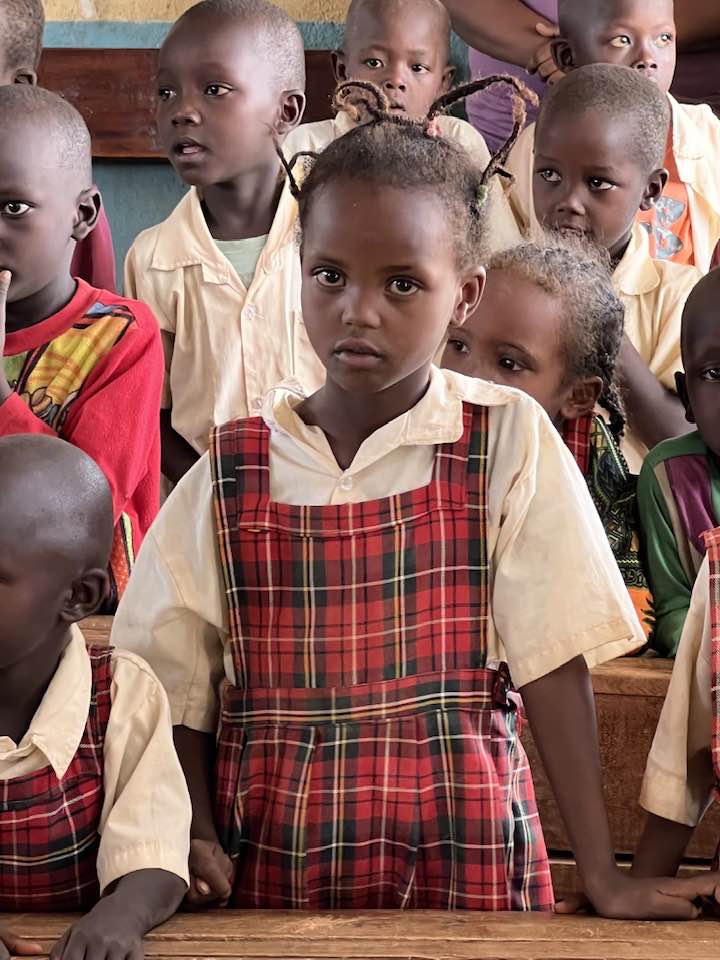
When Umoja’s matriarch, Rebecca Lolosoli, helped to found Umoja more than three decades ago, she had no blueprint, no role model. Within this northern Kenyan culture, the idea that women had any rights was a laughable concept at best, while most regarded it as a dangerous notion that must be squashed.
Rebecca and the women of Umoja came to this ideology on their own, in an absolute vacuum. They’ve dedicated their lives to save other women from indignity, abuse, and death–even in the face of being murdered for daring to question the status quo.
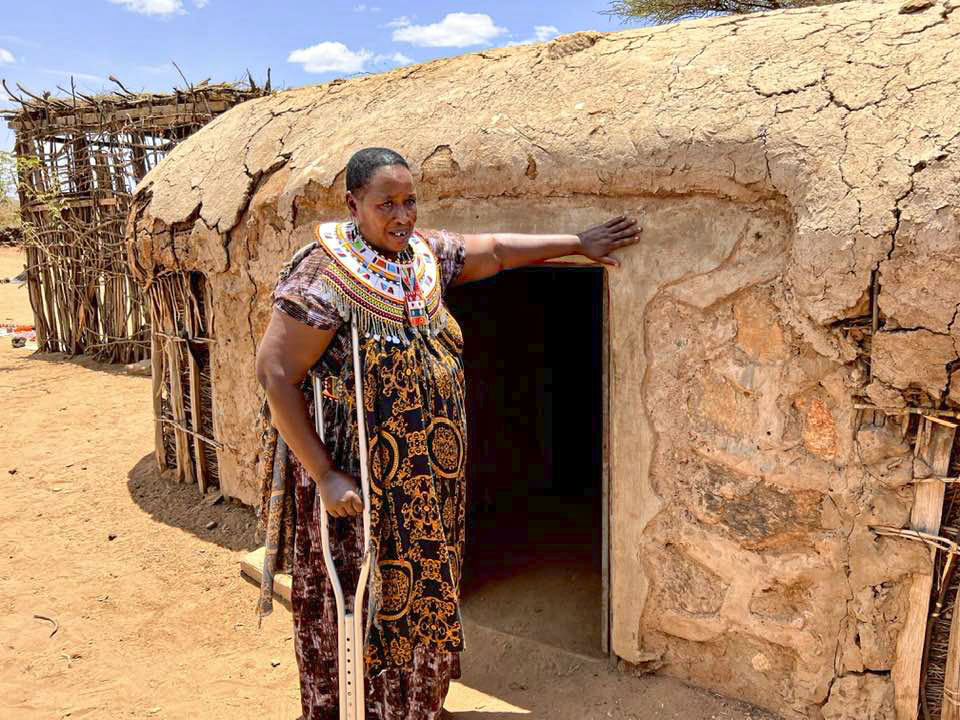
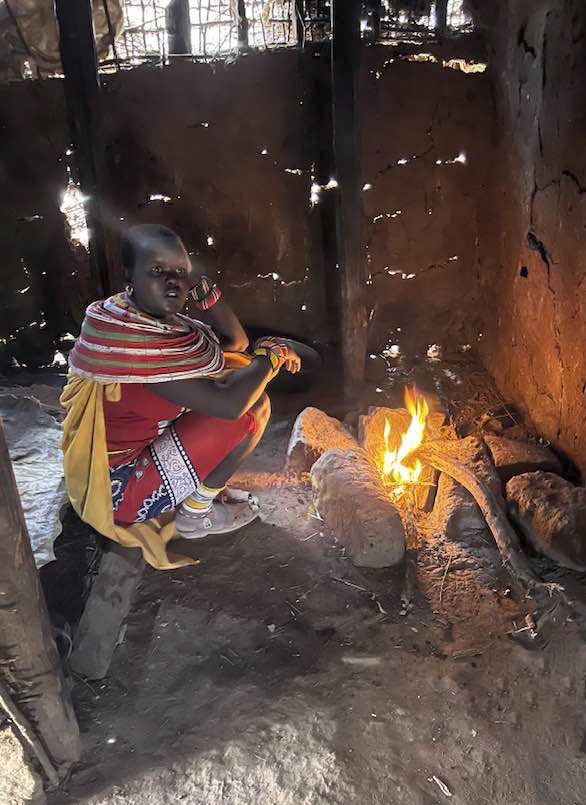
Rebecca showed us a traditional house made of cow dung and wood, but this one had been modified with a strong stone door. Violent men –angry at the women for bucking the norm and doing what they need to do to survive– still storm the village and break into houses to hurt these women in unimaginable ways. (Photo inside the hut is of a young girl who had just run away from her home and was still recovering – Jan L.)
A proper door on their huts provides a much-served sense of security. Fifteen houses still need this safety upgrade at $200 USD per door. Although Umoja will use donations as they see fit, we would like to think of this as “The Door Project,” providing basic security to the most vulnerable women and children.”
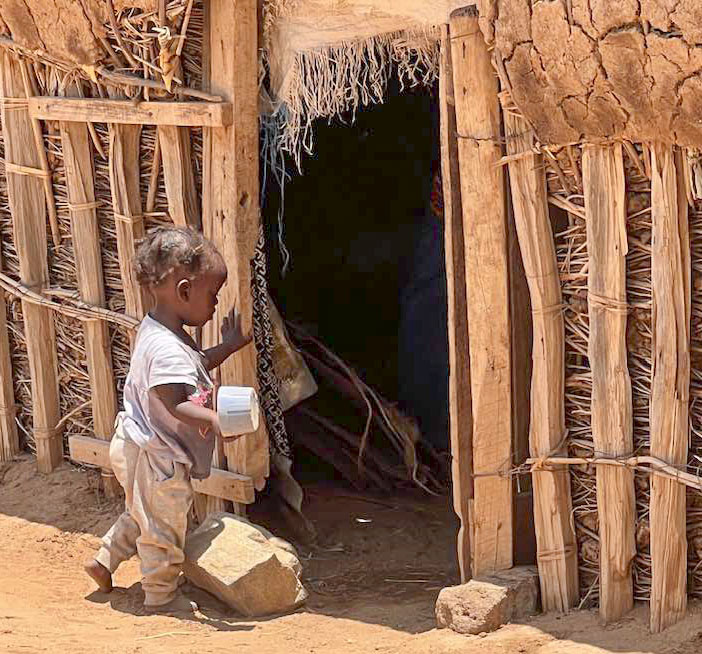

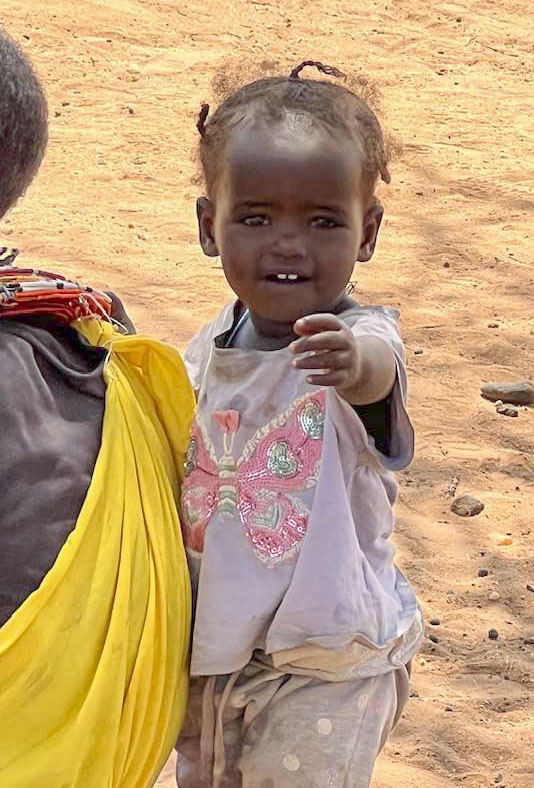
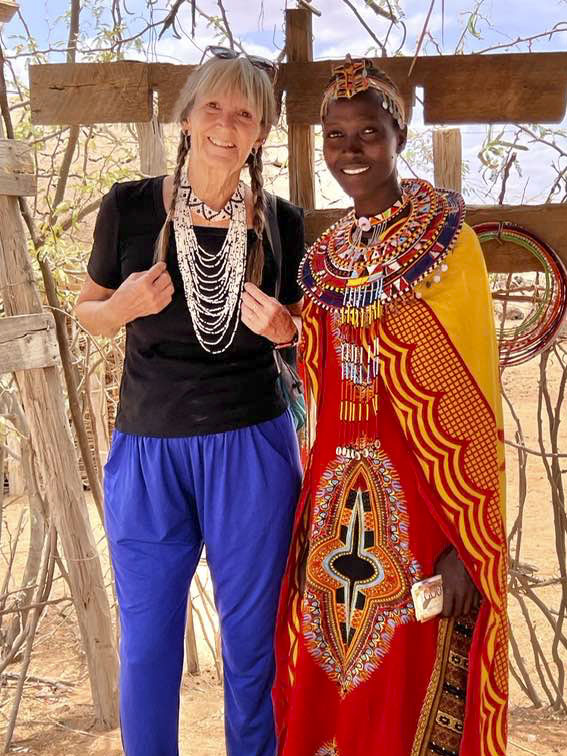
As you can imagine, they were particularly hard hit when tourism stopped during the global lockdown. If you feel moved to support the women of Umoja (and you’re not able to go to Kenya and buy as much jewelry as I did!), Lauren would be happy to facilitate the bank wire to Umoja’s Kenya bank account and pay the associated fees. (Totally trustworthy and I can vouch wholeheartedly for this project. The women in our group were so moved by the women’s predicament that we all donated to the “Door Project.”)
Here are the best ways you can support them:
- Venmo: @Lauren-Rathvon
- PayPal: L.S.Rathvon@gmail.com (personal transaction)
- You can donate by credit card (via PayPal)
- using this link (https://bit.ly/umojadonation)
Here is a bit more to get you started if you wish to learn more about Umoja:
- Umoja’s website
- The Land of No Men: Inside Kenya’s Women-Only Village: YouTube video by VICE Life. This is an interesting video because it also interviews local men and their views on Umoja
- Umoja: A Village Where Women Rule (gendersecurityproject.com)
- The Village Where Men Are Banned (The Guardian)
- Umoja Wikipedia article
- Rebecca Lolosoli Wikipedia

See the YouTube video mentioned above here: The Land of No Men: Inside Kenya’s Women-Only Village. It is a great tour through Umoja and a couple of other spin-off villages started by Rebecca. Enlightening and educational while still being quite entertaining. Also, I am listening to the book, The Girls of the Wild Fig Tree, by Nice Leng’ete. This woman’s life story about growing up in Kenya and her work to stop FGM (female genital mutilation) is incredibly moving. Check it out.
~ May All Beings Benefit ~



Jan and Lauren. What a moving and important blog post. Thanks for sharing it with us. Jan you’re a fierce traveling Dakini, too
Thanks so much, Martha. It was definitely a moving experience being there! Don’t know about me being a “fierce traveling Dakini” but you made me smile!!
Thank you Jan for this beautiful blog and for sharing about the work of the fierce feminine in this powerful community in Africa.
Thanks, Ellen. All I can say is, May all beings benefit.
This is an amazing blog, Jan. Thank you for opening our eyes to the fact that these injustices to women actually do exist. May all beings benefit from the words you shared. Thank you.
Thanks, Nan! Yes, I know what you mean because we see so much on the news or in print but these “injustices” are difficult to imagine as “reality” for us privileged Westerners. Although, since Roe vs. Wade was overturned, it sadly makes it more believable. The supreme injustice of not having control of one’s own body is HERE IN OUR OWN “modern civilized” COUNTRY!